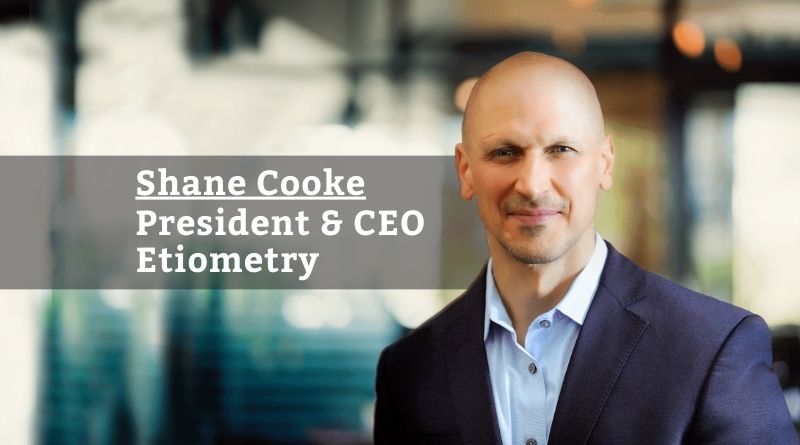Etiometry: Pioneering the use of AI in Health Tech – A Trailblazer Before AI Became Mainstream
Talent shortage and burnout are common issues in the healthcare industry. Healthcare facilities and hospitals struggle to optimize their medical staff while keeping operating and administrative costs reasonable. Moreover, the mental load on clinicians to make accurate clinical decisions based on patient data is the most challenging issue on both the personnel and business front. The Etiometry platform is built to resolve real-world challenges of care teams by providing a holistic view of patient data from the bedside or remotely and enabling clinical staff with a data-driven approach to communicate their needs in high-acuity units confidently.
Additionally, the platform allows early recognition of patient deterioration and improvement to enable clinical teams to optimize the patient journey across the care continuum, which can reduce length of stay (LOS) and help address overflow in critical care units.
The comprehensive AI-driven platform is used in 100+ ICUs worldwide and has demonstrated clinical outcomes, like decreased hospital lengths of stay, decreased ICU re-admissions, and reduced time on mechanical ventilation and other invasive treatments, such as vasoactive support. The outcomes impact not only the quality of patient care but also curb medical staff burnout.
The advanced AI algorithms powering the Etiometry platform provide early warning signs of clinical deterioration to prompt care teams to escalate and de-escalate care. These risk indices can interact with the platform’s clinical pathway automation capability, which essentially automates the hospital’s specific workflows or protocols.
Keeping Chaos Out of the ICUs
“The ICU is the most complex, expensive, and unpredictable care setting in healthcare, requiring rapid decision-making, often using snapshots of information,” says Shane Cooke, Etiometry’s President and CEO. Etiometry’s technologies and its team are driven by the passion for improving the lives of patients and their caregivers. Shane’s vision fosters a culture where customers are partners to the company. And working closely to understand their specific clinical situations helps identify ways to enhance their clinical and operational workflows. It helps optimize the care team’s communication.
For a decade, Etiometry’s cutting-edge platform has been a game-changer in the industry. The platform has secured nine FDA clearances, supported more than 150 clinical studies and provided unparalleled insight into patient physiology to help clinical teams deliver care that enhances quality and reduces costs.
Shane has over two decades of experience working with large enterprises and start-ups. He leads a diverse team at Etiometry, which includes software engineers, data scientists, ICU clinicians, and medical device and software industry veterans. Collectively, they work towards Etiometry’s core business philosophy and development efforts to automate the care escalation and de-escalation workflows. The most recent research and development initiative involves workflow automation, starting from patient admission to discharge, to provide the best-in-class clinical decision support.
Unlike conventional patient health monitoring modalities, Etiometry provides in-depth information on longitudinal trends using patient physiology to enable a personalized and proactive approach to clinical decisions. Coupled with the chaos in the ICU environment and typical hospital resource constraints, including staffing, critical care units are at risk of suboptimal care and patient outcomes. The overarching goal of Etiometry is to replace chaos with important data elements and in-depth, real-time insights into patient physiology.
Driving Outcomes with Interlinked Systems and High-fidelity Data
For a decade, Etiometry’s cutting-edge platform has been a game-changer in the industry. The platform has secured nine FDA clearances. To date, it has been deployed across 150 clinical studies. Additionally, the platform uses algorithms that allow early risk detection or patient conditions to support care decisions. These FDA-cleared algorithms, or risk indices, were developed utilizing more than 150 million hours of de-identified patient data. The indices guide treatment to help clinicians get ahead of patient deterioration, by providing an objective data-driven continuous assessment of the risk of patient deterioration, facilitating both efficient escalation and safe de-escalation decisions.
In addition, the Etiometry Quality Improvement App (QIA), is a tremendous value-add to clinical researchers and quality improvement professionals. It provides high-fidelity data for studies to improve patient care. The QIA is a separate API providing very detailed data in which researchers can assess outcomes for patients and evaluate adherence to important protocols. It also helps test clinical hypotheses. Moreover, the QIA is a searchable, normalized database that supports both single-center and multi-center research. Etiometry has supported more than 150 clinical studies to date.
Elaborating on the functionality within the Etiometry platform, Shane highlighted its improved representation of clinical data compared to EHR data. The features enable seamless extension of the EHR for effective patient care in high acuity settings. The feature allows integration of high-frequency device data and EHR information to provide a single source of truth about patient information for the clinical teams. Bridging the information gap between bedside monitoring and EHR powers the clinical decision support with high-fidelity data.
Building A Pathway for Successful Clinical Outcomes
One of Etiometry’s customer success stories involves the automation of an extubation readiness protocol. The result was that it led to a 19% reduction in hospital length of stay and a 22% reduction in time on ventilation. A typical extubation process is challenging and driven by several clinical factors. Additionally, respiratory therapists at the customer’s hospital had many patients to manage and detailed protocols to follow to determine the right time for patient extubation. When combined, these factors tend to result in patients remaining on ventilators longer than needed. Etiometry worked with an ICU to assess its current extubation protocol by retrospectively analyzing the data collected for thousands of patients. Based on this analysis, changes were made to the protocol parameters, and a real-time alert was developed to flag patients for extubation readiness tests and to track compliance with the chosen criteria.
The Etiometry platform was used to identify patients with active alerts for being ready for an extubation test and to quickly assess the outcome of the test to make more informed ventilation decisions. This automated pathway was utilized with ~750 patients.
After driving several advancements and innovations in the realm of critical care, Etiometry is poised to invest the current year in development efforts to expand its waveform functionality, as well as its automated clinical pathways to cover more disease states and patient populations. In 2024, Etiometry will continue to enhance EHR integration with more hospital systems and platforms to aid informed clinical decisions in hospitals and critical care units.



